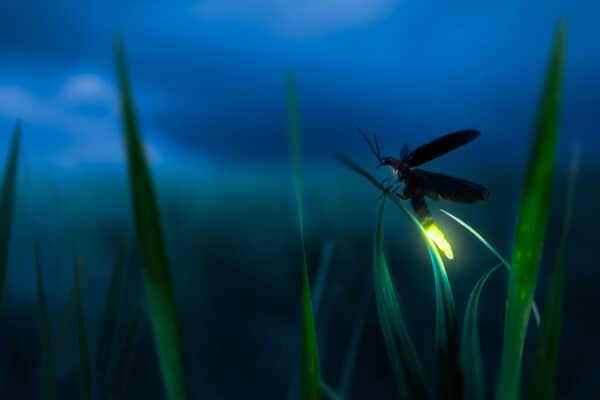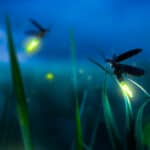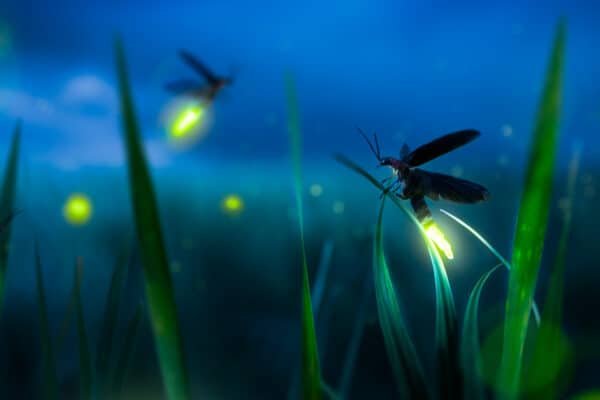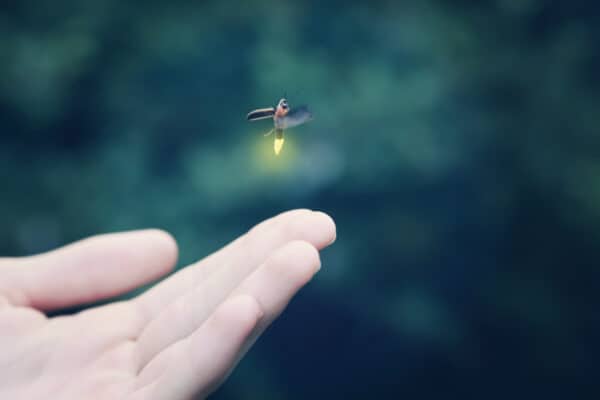Welcome to the Firefly Quiz! One of the most fascinating insects to be found worldwide is fireflies, commonly referred to as lightning bugs.
They are renowned for their bioluminescence, a phenomenon in which their bodies emit light. As people have been fascinated by these fascinating creatures for so long, we have learned a great lot about them.
Your knowledge about fireflies, including their distinctive behavior, habitat, and more, will be put to the test in this quiz.
Now, take the quiz and discover how much you know about fireflies whether you’re an expert on these insects or are just captivated by their brightness!
What type of animal is a firefly?
Correct
Incorrect, CLICK TO REVEAL the correct answer
Need Help? Clue is here
Insect/Beetle
Mammal
Reptile
Bird
What is the scientific name for a firefly?
Correct
Incorrect, CLICK TO REVEAL the correct answer
Need Help? Clue is here
Arthropoda
Coleoptera
Lampyridae
Insecta
Five Interesting Facts About The Firefly
The firefly, commonly referred to as the lightning bug, is an intriguing insect that has fascinated people for generations. Due to a phenomenon called bioluminescence, which occurs naturally, these tiny beetles are well-known for producing light from their bodies.
Even though their glow is well known to many, there is still a lot to discover about these fascinating insects.
Here are five interesting facts about the firefly insect:
- Fireflies are neither classified as flies nor bugs, despite their name.
- While fireflies are known for their bioluminescence, not all of them produce light in their adult stage.
- There are numerous species of fireflies found around the world, each with its own unique characteristics.
- The firefly is the official state insect of Tennessee.
- Some species of fireflies are toxic, which helps protect them from predators.
What is the most common color of a firefly?
Correct
Incorrect, CLICK TO REVEAL the correct answer
Need Help? Clue is here
Green
Yellow
Blue
Black/Brown
What is the purpose of a firefly’s light?
Correct
Incorrect, CLICK TO REVEAL the correct answer
Need Help? Clue is here
To find food
To communicate with other fireflies
To scare predators
To attract mates
How long does the average firefly live?
Correct
Incorrect, CLICK TO REVEAL the correct answer
Need Help? Clue is here
1-2 years
1-2 months
1-2 days
1-2 weeks
What is the common name for the process of a firefly producing light?
Correct
Incorrect, CLICK TO REVEAL the correct answer
Need Help? Clue is here
Photosynthesis
Bioluminescence
Chemosynthesis
Hydrolysis
At what time of day are fireflies most active?
Correct
Incorrect, CLICK TO REVEAL the correct answer
Need Help? Clue is here
Morning
Evening
Afternoon
Night
What is the purpose of a firefly’s light patterns?
Correct
Incorrect, CLICK TO REVEAL the correct answer
Need Help? Clue is here
To attract prey
To identify species
To warn predators
To indicate location
What is the Lifecycle of a Firefly Insect?
Similar to other types of beetles, fireflies experience a complete metamorphosis that involves four distinct stages: egg, larva, pupa, and adult.
The entire life cycle can range from several months to more than two to three years, and a significant portion of it is spent in the larval stage.
In their natural environment, fireflies have a lifespan of roughly two months. There is some anecdotal evidence to suggest that firefly populations may be decreasing in number.
Fireflies inhabit fields, meadows, forests, and other natural habitats, but these areas are dwindling due to increased development.
What is the primary diet of a firefly?
Correct
Incorrect, CLICK TO REVEAL the correct answer
Need Help? Clue is here
Nectar
Meat
Leaves
Other insects
What type of environment do fireflies prefer?
Correct
Incorrect, CLICK TO REVEAL the correct answer
Need Help? Clue is here
During what season do fireflies mate?
Correct
Incorrect, CLICK TO REVEAL the correct answer
Need Help? Clue is here
What is the purpose of a firefly’s courtship flight?
Correct
Incorrect, CLICK TO REVEAL the correct answer
Need Help? Clue is here
To escape predators
To find food
To attract mates
To mark territory
What is the primary predator of fireflies?
Correct
Incorrect, CLICK TO REVEAL the correct answer
Need Help? Clue is here
What is the lifespan of a firefly larva?
Correct
Incorrect, CLICK TO REVEAL the correct answer
Need Help? Clue is here
1-2 years
1-2 months
1-2 days
1-2 weeks
What is the lifespan of a firefly adult?
Correct
Incorrect, CLICK TO REVEAL the correct answer
Need Help? Clue is here
1-2 years
1-2 months
1-2 weeks
1-2 days




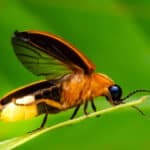
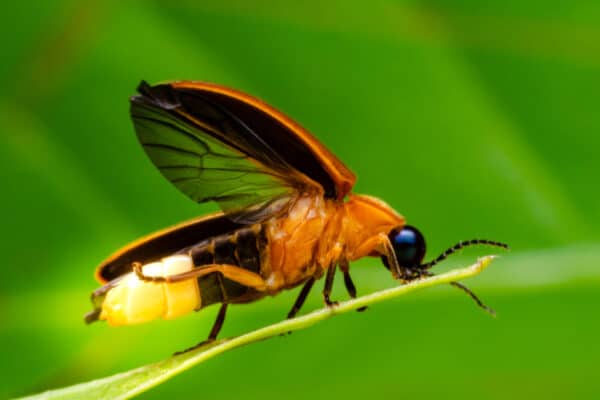
 khlungcenter/Shutterstock.com
khlungcenter/Shutterstock.com
